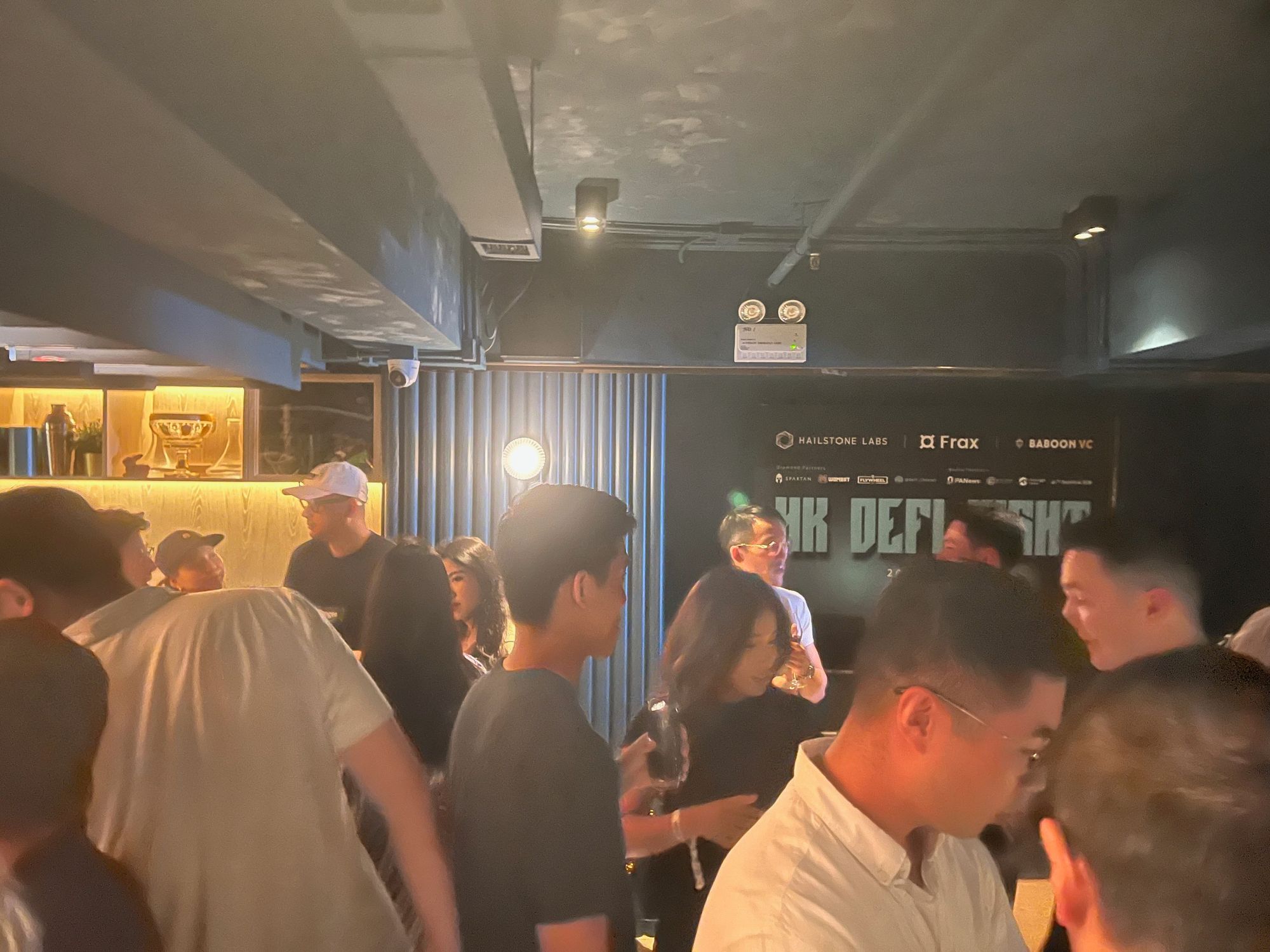Narratives in crypto move at the speed of light, and even as a person terminally glued to their timeline (I’ll touch grass this weekend I promise), its difficult to fully comprehend broader themes like the rise of the China and the East as a whole in crypto. Yet simplifying narratives into engagement-baiting threads is an extreme oversimplification of what’s happening in the region. In the wake of hosting a Frax happy hours on the other side of the world I’ve come to a better understanding on how the East views crypto and how we can incorporate it in the West.
The Differences Between East and West
For almost three years, Asia was closed due to Covid. The previously bustling crypto conferences that encompassed the wide area were shuttered just up until recently. ETHTokyo was the first major event that attracted Westerners (especially builders) to fly half a world away. Yet, the crypto events and meetups that dotted the city are seemed quite familiar in attitude and tone, no matter the location.
Why is that? Well in the West, crypto is shaped by liberal ideals; individualism, sovereignty and freedom. These intellectual foundations are what make building in crypto uniquely Western in its DNA. The birth of our industry prominently heralds in Bitcoin’s Genesis block “The Times 03/Jan/2009 Chancellor on brink of second bailout for banks.” The raison d'etre capturing the imagination of many who enter the space. As such, Western builders and investors tend to focus on concepts such as permissionlessness, non-custodial, and decentralization.
If the West focuses on ideals, the East is firmly rooted in the practicality of the technology as a more efficient means of settlement. I don’t think it’s a coincidence that whoever Satoshi Nakamoto was, he took on a Japanese name as if he was anticipating the majority of users today would be Eastern in DNA (literally).
When BSC started to gain popularity as the first alt-L1, its low fees attracted cost-conscious users from around the world, especially in Southeast Asia. For many in the West (myself concluded), we were blindsided by the development, as we prioritized mainnet’s high gas fees as necessary for security. Once Western attitudes towards costs started to change, later alt-L1s Polygon and Avalanche earned the nickname the “White Man’s BNB.”
On-The-Ground Experience
After Tokyo, the gravity of Hong Kong drew me to come see a close crypto influencer friend who moved to the city years ago. Hong Kong sits uniquely at the financial and cultural crossroads between East and West. Yet between political upheaval and stringent Covid restrictions, the past few years have been tumultuous for the city. As a response to fleeing expats and negative trade views, Hong Kong made some improvements to its crypto policy in 2023, receiving a blessing from Beijing to allow open crypto experimentation.
A few weeks ago, I told my friend I was interested in throwing an event for Frax and they quickly spun up a telegram group chat with some other locals to plan last minute logistics. On a foggy 4/20 evening with Web3 festival week firmly in the rearview, I was surprised how much support there was for Frax at our HK DeFi Night. With help from Hailstone Labs, Wombat VC, Spartan, Group, and DeFi Cheetah, the event was a huge success.

One of my biggest takeaways from Hong Kong was how widely embraced crypto is as an industry as a logical extension of finance. I was impressed by the sophistication of the individuals and funds I talked to who interact with DeFi regularly many of whom had TradFi experience previously and were open about it. This is in contrast to the US where many of those current and past-TradFi are anon for a multitude of reasons. Furthermore, I learned that government agencies like the Hong Kong Monetary Authority are planning to launch their own HKD-backed stablecoin. This development should be watched closely as it could have interesting ramifications in the future.
Contrast that to the US, where crypto is being dragged through the mud by every regulator and legislation that brings a comprehensive framework for crypto is still years away from being passed. Institutions do not have any certainty whether they can invest in crypto with long term confidence. After nearly a decade and a half, the industry is still viewed as a gimmick, with luddite politicians attempting to build anti-crypto armies. The same tired polarizing arguments have been on replay more than Ridiculousness repeats (which actually describes the situation quite well), stifling progress and creating more confusion than a bunch of old shock videos that don’t make any sense.
Conclusion
The push and pull of laws and regulations across continents over the past decade has driven capital and labor flows from East to West and back. In 2014, when China first banned Bitcoin, a massive part of the industry headed offshore to Hong Kong and other locales. Now when Gensler and company are cracking down in Washington, the Pearl of the Orient is regaining its luster.
Crypto is still quite early and even though much interest is driven by speculation, when you dive in deep enough, it’s a culture of building open communities that share collective experiences together. By combining the idealistic philosophy of the West with the practical adoption of the East, we can form new connections like neurons sparking new pathways in the brain via unique cross-cultural exchange. As the bonds of our industry become stronger through both innovations and experience, we will be able to weather any turbulent chaos that our industry faces in the future.




